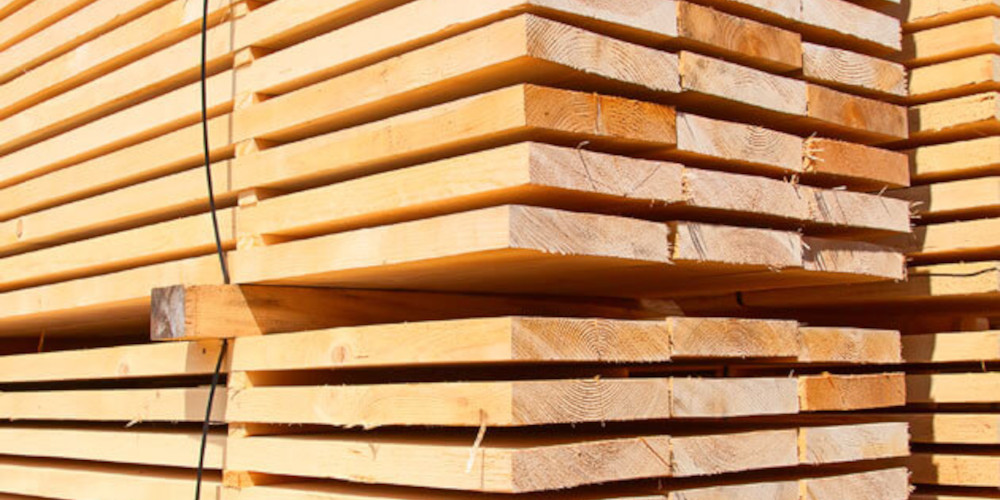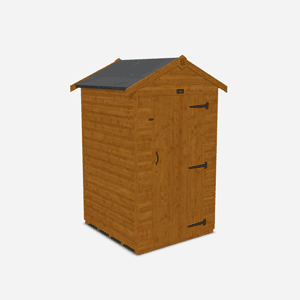The Rising Costs of Timber in 2021
Published: 27/05/2021

You may have noticed that prices for garden buildings have been increasing across the market. Competitors, such as Garden Buildings Direct, Waltons and Dunster House, have all raised prices a number of times since the start of 2021. Although we always strive to keep prices low at Tiger, we may have to raise our building prices to keep in line with the soaring cost of wood.
The scale of the increases

Reports may vary, but the common thread is that a lot of raw material prices have risen significantly since the end of last year. Plastics, steel, glass and other components have all shown increases, but one of the most marked increases has been in timber. As Popular Mechanics states, timber prices have risen 130% all over the world since the start of the Covid-19 pandemic. In May 2021, the Guardian reported that timber has become 80% more expensive in the last six months. When you consider that timber prices rose by just 5% between the start of 2014 and middle of 2017, it becomes clear the increases we’re currently experiencing are hugely significant. And these rises don’t just affect the prices you pay for sheds, they’re having knock-on effects in building and construction too.
So why is this happening?
The worldwide economy depends on a system of supply and demand – both of which affect the prices of consumer goods. We take a deeper look at some of the factors affecting this balance:
The pandemic
During the pandemic, demand for sheds – and timber in general – increased hugely. We experienced this first-hand as we faced an unprecedented number of orders. With people focused on their homes during lockdown, DIY and home improvement projects became a priority in general, and for the garden building sector many people working from home also looked to create a garden office, or simply somewhere to get some peace while the kids were at home (and probably making quite a racket!).
New markets and new uses

Meanwhile a resurgent housing market in the UK and especially the US (where more houses are timber framed) and emerging foreign markets, such as China, are willing to pay higher prices for timber to acquire what they need. Wood is also becoming more popular among housing developers as architects find new ways to use it in construction. In fact, timber is also being used in new ways across the board. For example, massive amounts of timber are now used for biomass power (to generate electricity and heat). What’s more – the number of biomass stations in the UK is increasing.
Bad weather & the bark beetles
Bad weather in winter 2020/21 has meant that major timber exporting countries in Scandinavia have produced less timber – particularly the high grade European softwood we use in our buildings - and therefore have less timber to sell. This helped to lower supply which, combined with a much higher demand, has increased timber prices. At the same time, an insect infestation in North American forests has reduced the availability of timber over there, so a lot of American businesses are looking to buy their supplies in Europe, which is also driving up prices.
Increased transport costs
The cost of transporting freight – both at home and abroad – has increased dramatically. The pandemic has reduced the ability of foreign transport companies to fulfil orders at a time when travel bans were (and still are) in place. According to the BBC, shipping costs from Asia to Northern Europe have risen 500% in the year to May 2021 – imports of natural materials from the Far East are expensive, forcing timber merchants to look to Europe more too.
Brexit

Britain’s exit from the European Union has also affected timber prices. Due to the introduction of new customs rules and plant health procedures, it’s now slower, more difficult and costlier for haulage companies to transport timber from mainland Europe to the UK. As a result, this is causing another issue of supply and demand for the timber industry – particularly in the UK.
Tiger’s prices in 2021 – where you stand
We’re doing our best to keep prices down – we pride ourselves on offering good value for money. But as the price of timber rises, so does the cost of producing sheds. As a result, we may have to increase prices soon - just like other garden building companies already have. With this in mind, it’s best to order now before things rise!

Sheds are still great value
It’s no surprise to us that 60% of Brits have a shed. For many of our customers, their sheds have proven to be so valuable to them – not just in lockdown, but before (and no doubt after) it too! From garden offices, to man caves, she sheds and storage spaces, garden buildings have many uses. 17% of people even said they’d like to live in theirs! And as housing prices continue to rise, and traditional homes become less affordable, the prospect of living in a shed is becoming an attractive prospect to millions of people around the UK. This is all testament to the ever-growing quality and usefulness of sheds, log cabins and summerhouses. Whether you want to live, work or relax, wooden garden buildings are a great option. Especially since they blend naturally into their environment – and the best ones come well insulated and are very comfortable to spend time in. So even when prices are higher than normal, garden buildings still offer great value and have many, many potential uses for you and/or your family.








